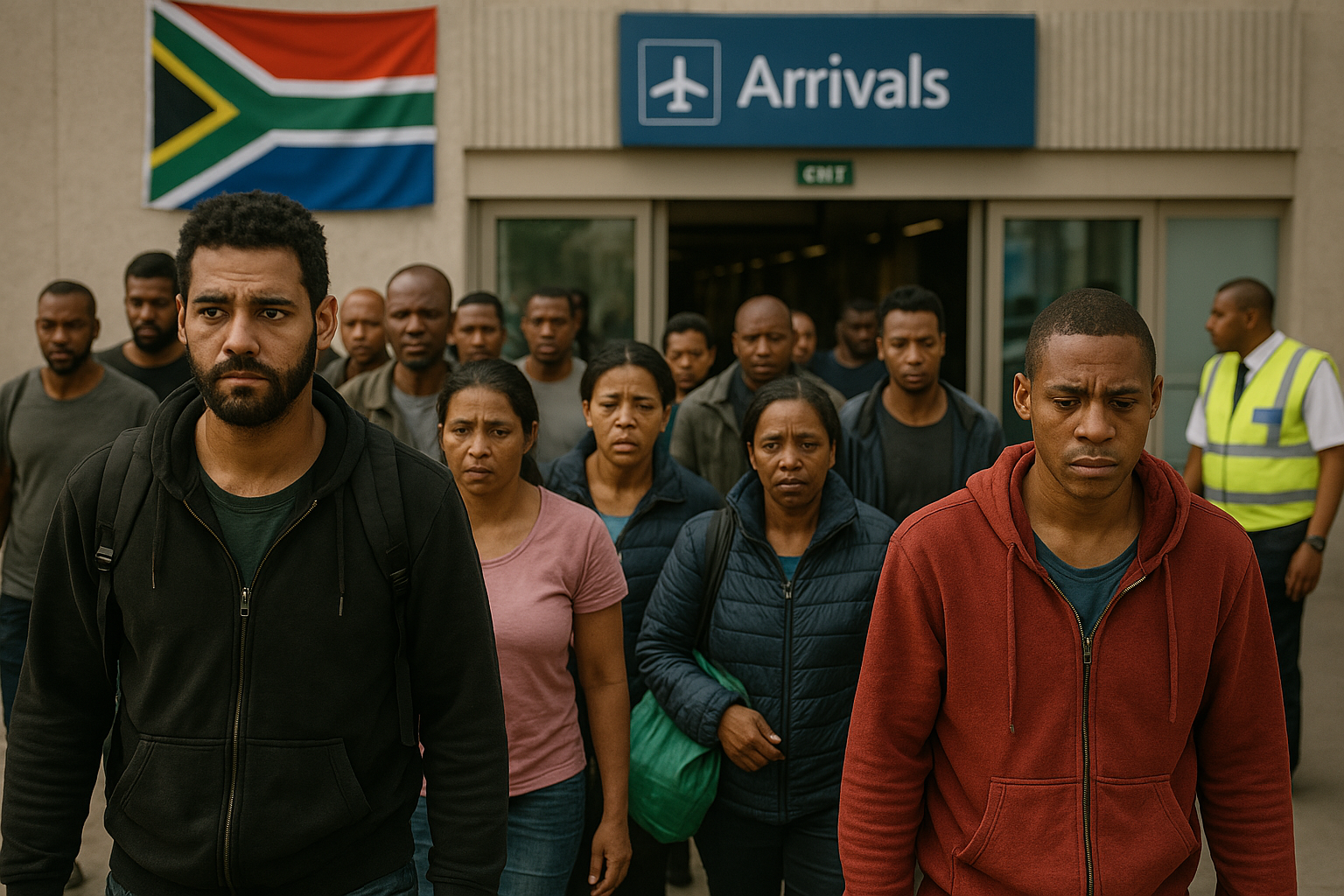SA Raises Alarm Over Arrival of Dangerous Deportees in Neighboring Eswatini

- Country:
- South Africa
The South African government has formally expressed its deep concern to the Kingdom of Eswatini following the arrival of a group of dangerous foreign nationals, many of whom have been convicted of serious criminal offenses and deported from the United States of America. The situation has triggered alarm within South Africa’s diplomatic and national security establishments, owing to Eswatini’s geographic proximity and porous border areas, which could potentially facilitate unauthorized cross-border movements.
Arrival Confirmed by Eswatini, Linked to US Deportation Operations
The development was confirmed by Mrs. Thabile Mdluli, the acting spokesperson of the Government of Eswatini, who acknowledged that the group of multi-national criminals had landed in the landlocked kingdom via a special flight arranged by the United States Department of Homeland Security.
According to the Department of International Relations and Cooperation (DIRCO), the individuals were deported by the US after being convicted of a range of serious offenses, and were reportedly not accepted by their countries of origin, which include Laos, Cuba, Jamaica, Vietnam, and Yemen.
The Kingdom of Eswatini, it appears, agreed to act as a temporary transit point for these deportees. However, uncertainty remains over their final repatriation as their home countries have rejected or are unwilling to receive them.
International Collaboration Cited — But Repatriation Uncertain
DIRCO stated that both Eswatini and the United States have indicated that they would work with the International Organization for Migration (IOM) to facilitate the onward travel of these individuals to their countries of origin. However, the likelihood of actual repatriation remains slim, as most origin countries have demonstrated resistance or outright refusal to accept the deportees.
“DIRCO also noted that the countries of origin of these deportees are unlikely to receive them,” the official South African statement read, underlining the diplomatic impasse surrounding the issue.
National Security and Immigration Implications for South Africa
South Africa’s core concern revolves around national security and immigration policy integrity. As a direct neighbor to Eswatini, South Africa maintains extensive land border crossings, many of which are difficult to police due to terrain and volume of traffic. The arrival of individuals with violent or high-risk criminal backgrounds in Eswatini could, according to officials, present an immediate and medium-term threat to public safety within South Africa’s borders.
“While respecting the sovereign decisions of the Government of Eswatini, South Africa expressed deep concern about the profile of these individuals and the potential adverse impact on South Africa’s national security and immigration policy,” DIRCO emphasized.
Analysts warn that the lack of detention or oversight mechanisms for such deportees once they land in Eswatini could enable them to blend into regional populations or travel illegally into South Africa, which already grapples with cross-border migration challenges.
Regional Ramifications and Bilateral Diplomacy
This latest episode comes at a time when regional governments in Southern Africa are intensifying efforts to improve border security cooperation, particularly in light of transnational crime, human trafficking, and illicit migration networks.
While South Africa has historically maintained strong diplomatic and economic ties with Eswatini, this situation may test bilateral relations and prompt demands for more transparent protocols regarding third-country nationals entering the region through foreign deportation agreements.
DIRCO is expected to continue consultations with its Eswatini counterparts to ensure enhanced communication and monitoring, particularly if further groups of similar profiles are expected to be transported to Eswatini in the near future.
Growing Global Scrutiny of Deportation Practices
The case also highlights growing global scrutiny of deportation practices by Western nations, especially when deportees are sent to third countries as part of offshore transit or containment agreements. Critics argue that such arrangements place undue security and humanitarian burdens on less resourced nations, often without a clear legal framework or monitoring mechanisms in place.
For now, South Africa has drawn a red line, voicing its objection to potential threats that may arise from such arrangements and signaling a broader concern about the regional implications of international deportation policies.










